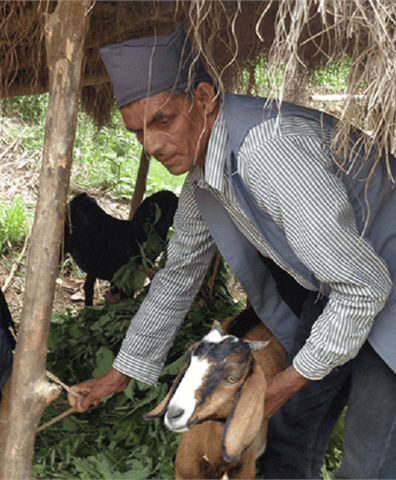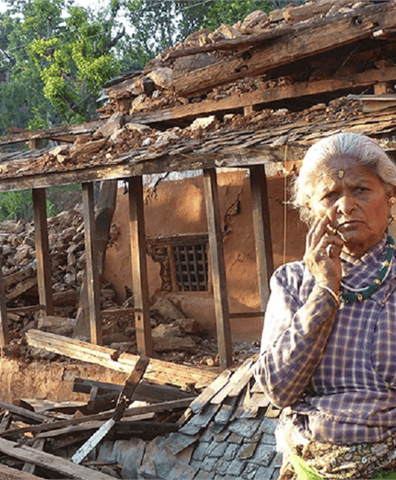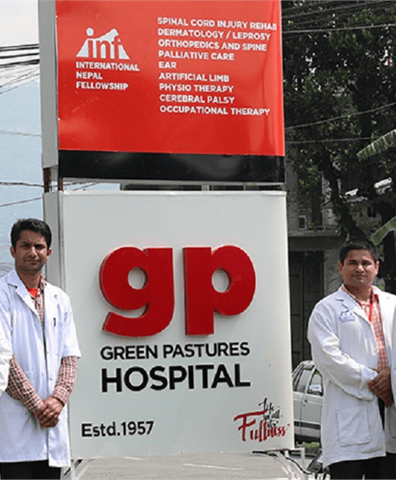About us
Who we are
OUR VISION
Nepali people living dignified, hope-filled lives, free from poverty and suffering. OUR MISSION Working with local communities and healthcare services, to improve health, reduce poverty and promote social inclusion.
OUR VALUES
Love and compassion. Inclusion and dignity. Professional excellence.
OUR ETHOS
INF draws its ethos and values from its Christian history and heritage. We show active compassion, share with the world’s poorest, and encourage individuals and communities to access and enjoy their rights. We believe all people are equal, and so inclusion and dignity are very important to us, irrespective of gender, sexual orientation, religious belief, disability, economic status or caste. We are motivated by our Christian faith, we describe this as being committed to following Jesus Christ in ways that are relevant to the needs of today’s world.
OUR WORK
We work with carefully selected local partner organisations, many of whom we have worked with for decades. The projects we support involve professionals from Nepal and around the world who bring about the best working practices. These highly skilled specialists often work together with Nepal’s government or government institutions to provide health services, training, and support to community development programmes. The majority of staff working in our projects are local. They understand the needs and cultural context of the communities we serve.
POVERTY IN NEPAL IS WIDESPREAD
Nepal is one of the poorest and least developed countries in the world. The country is a very young democracy. It is in the process of emerging from a politically and socially fragile post-conflict period. Its people have worked hard and achieved much to reduce poverty in Nepal. Twenty years ago, nearly every other family lived in extreme poverty, earning less than $1.25 a day. Although this number has halved, today there are still one in four families living in abject poverty. Gender, social group and geographic area are major factors that can influence a person’s opportunity to break the cycle of poverty. Our focus is on those that still suffer poverty, discrimination and exclusion. Poverty is not inevitable. INF has established nearly 1,000 self-help groups in Nepal’s poorest communities. Each day, these groups are taking action to improve life in their villages.
HUNGER AND FOOD SHORTAGES ARE COMMON
Agriculture is the main source of income for most people, but only 20% of Nepal’s land area can be cultivated. Traditional farming methods are often not adequate to supply sufficient food for the whole year. Children are particularly affected by the lack of food. One in three children under the age of five are underweight or malnourished. Nearly one in four children are stunted in their growth. This often leads to health complication in later life, especially when they become women of child-bearing age. Thanks to our partner’s projects, many families have learned how to improve their farming techniques. Others have learned new skills to find new opportunities to earn an income. Many of them now have sufficient food for the whole year
THE OPPORTUNITY TO LIVE HEALTHY LIVES
In rural areas, accessing basic health services can be difficult. Health posts are often badly equipped, staff lack training or confidence in dealing with complex conditions. Mothers and unborn babies are particularly at risk, as the next hospital can be several hours walk away. The problem is compounded by the fact that health services are not free in Nepal. Poorer families often cannot afford to pay for medical treatment. For many, seeking treatment too late means that they have additional health issues. They may even have to face living with a disability for the rest of their life. Health services in Nepal are slowly improving, but the need is great. INF’s health clinics and medical outreach camps are instrumental in bringing free health care to those who are at risk of missing out.
NATURAL DISASTERS AND SEVERE WEATHER CONDITIONS PUT LIVES AT RISK EACH YEAR
Nepal is one of the most disaster-prone countries in the world. This is another reason why Nepal is one of the poorest countries in the world. Severe weather conditions during monsoon time, floods and landslides, affect thousands of people every year. The poorest people are often hit hardest. They are often forced to settle on land in risky places, such as close to a river. The poor quality of their homes means that, when disaster strikes, they are at risk of losing everything, even their tools to farm or earn a living. It is estimated that seven out of every hundred people in towns and cities are living in squatter settlements and only one in three houses are safe to live in. Building safe and resilient communities is one of INF’s priorities, with a particular focus on protecting poor and vulnerable people. This includes making sure that they have access to adequate, safe and affordable housing and can take measures to prevent economic loss should a disaster strike, reducing poverty in Nepal.



